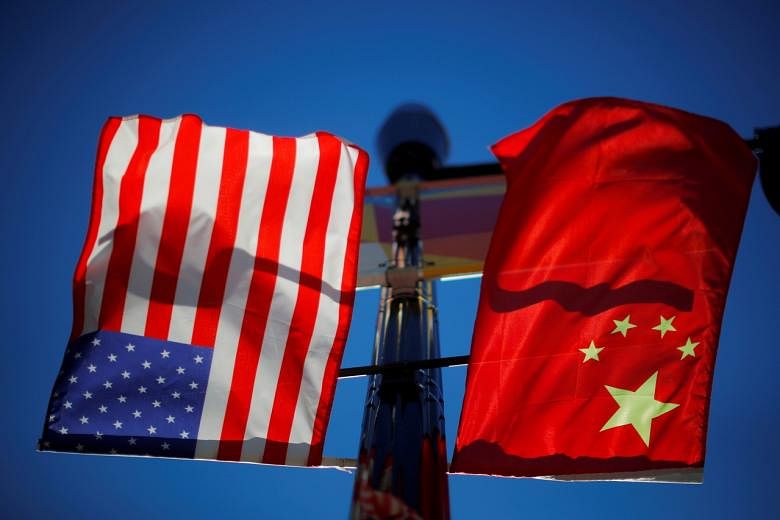SINGAPORE - The moves by the United States to cement its leadership and boost its military presence in Asia will give countries in the region more room to manoeuvre when dealing with Beijing, and is vital for strategic balance, said panellists at the Bloomberg New Economy Forum.
In that regard, the new Aukus strategic defence alliance between the US, Britain and Australia, and the strengthened Quad partnership between the US, Australia, India and Japan, are likely to still have a stabilising effect in the region, even if the moves have provoked China and other countries, said former Australian prime minister Kevin Rudd.
Mr Rudd, who is president and chief executive officer of the Asia Society, a non-profit organisation dedicated to promoting understanding about Asia, said the moves must be seen as a series of actions in the region to redress the emerging power imbalance resulting from the rise of China.
He was part of a panel discussing the impact of the US-China rivalry on Asia.
Mr Bilahari Kausikan, chairman of the Middle East Institute at the National University of Singapore, said there was a better appreciation among Asean countries that "everybody needs a good relationship with Beijing, but the necessary condition for that is to have Americans around".
Some countries may not openly declare it due to domestic politics and other considerations, but this is the general understanding, added the former diplomat.
Even then, there will be tension as a result of the state of affairs, and Asean countries will find themselves in a difficult and uncomfortable position if the US takes policy actions that force them to make a choice, said Columbia University School of International and Public Affairs dean Merit Janow.
"And so, I think we should be creating a positive agenda in a region that has its own dynamic and is not forcing choice," she added.
She suggested that the digital economy might be a possible area for cooperation, noting that many countries are still trying to come up with regulatory systems and are only starting to think about issues of privacy and cyber security.
Mr Bilahari, though, said it was in fact the US presence in the region that gives countries agency.
He added: "So when we say we don't want to choose, what we really mean is we don't see any need to neatly align our interests across all domains in one direction. Some of our interests will take us in the direction of China, some in the direction of Australia, Japan, the United States, India, Botswana.
"We have agency and the US presence gives us the agency because if there is no balance, there is no agency for small countries."
Meanwhile, at a separate panel discussion, also on the US-China rivalry and its impact on the world, former British prime minister Tony Blair said he believes that Europe, at a very fundamental level, will want to stay with the US.
"Europe will not want to be seen or want to start navigating between China and the US as if they were equidistant," he added.
Ultimately, while European countries will have to look out for their interests, it will still be values, such as the belief in democracy, that will bind them with the US, he said.
Noting that the West is trying to search for the right relationship with China, he added: "People will understand that you have to engage with China - whether it's on climate or on pandemics or the stability of the global economy - but at the same time, recognising that China has taken a different path in the last few years. It's become more internally repressive, more externally aggressive.
"I think the West will want to retain superiority militarily, in technology, and on the economy."


